
Brand Culture | Brand Image |
Brand Recognition | Brand Status |
Business Financing / Refinancing | Closing Sales |
Conversion Rate | Corporate / Brand Reputation |
Customer Acquisition Cost | Customer Complaints / Service Inquiries |
Customer Demand | Customer Experience |
Customer Lifetime Value | Customer Loyalty |
Customer Ratings & Reviews | Customer Relationships |
Customer Retention | Customer Satisfaction |
Employee Engagement | Employee Experience |
Employee Performance | Employee Productivity |
Employee Retention | Employer Brand |
Environmental Impact | Information Security |
Input Costs | Inventory Turnover |
Investor Relationships | Market Penetration |
Market Share | Organizational Culture |
Partner / Supplier Performance | Receivables Turnover |
Recruiting | Regulatory Relationships |
Revenue | Revenue Per Customer |
Risk Reduction | Sales Margins |
Share of Wallet | Social Impact |
Strategic Partnerships | Supply Chain Performance / Risk |
User Engagement | Word of Mouth |
Financial Outcomes
Outcomes related to revenue, costs and the financial condition and performance of a business.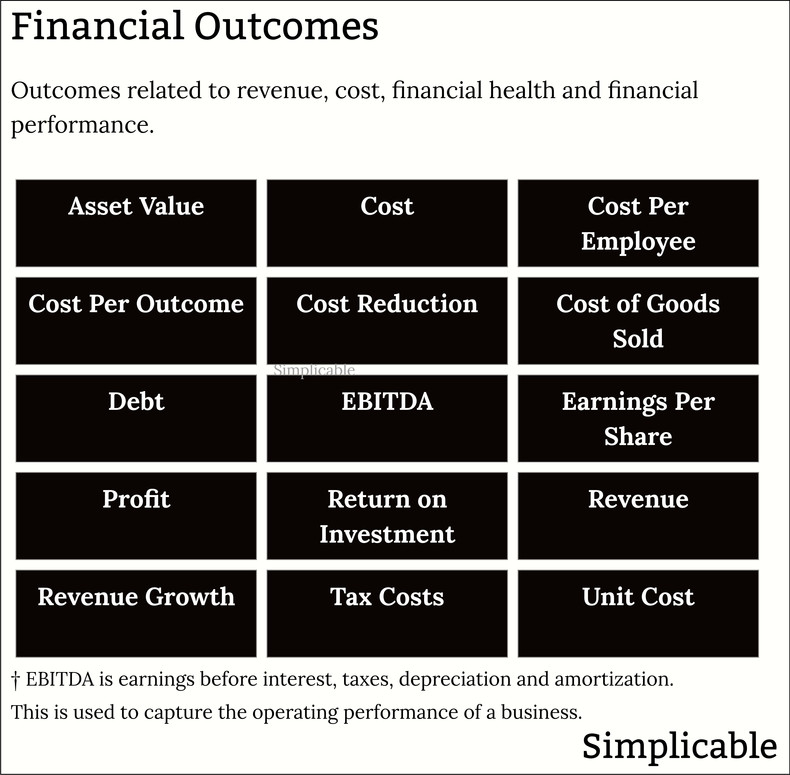
Strategic Outcomes
Outcomes related to the foundational strategy of an organization in the long term. For example, a solar panel company that seeks cost leadership by achieving greater scale than the competition.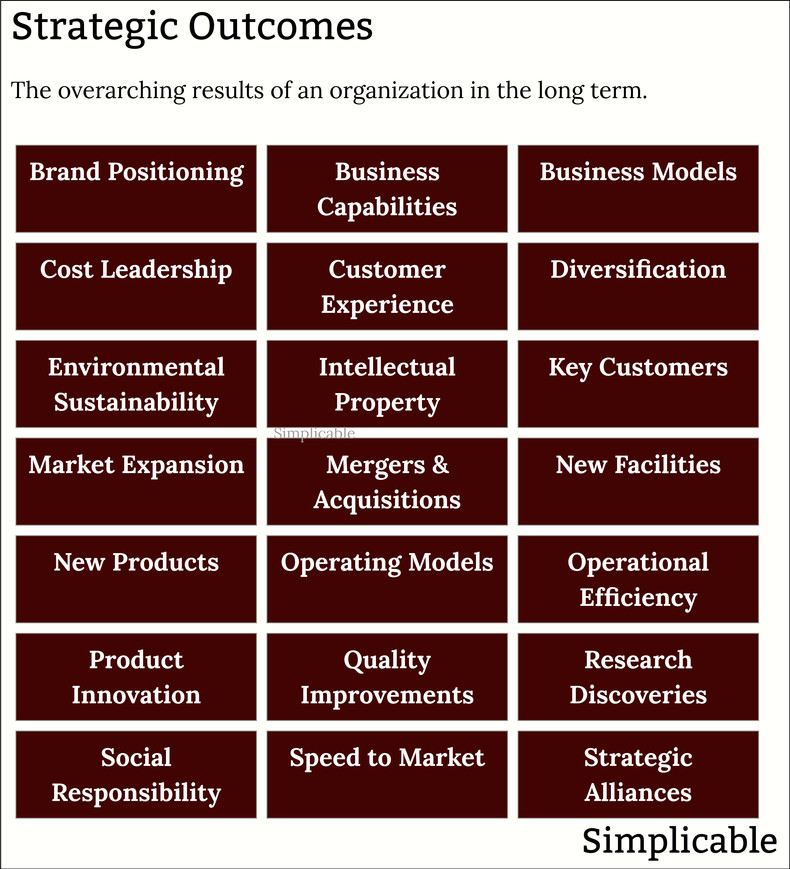
Customer Outcomes
Customer outcomes including how well your offerings meet customer needs and represent a compelling customer experience. For example, a service upgrade that reduces customer satisfaction such that it is unsuccessful from a customer outcome perspective.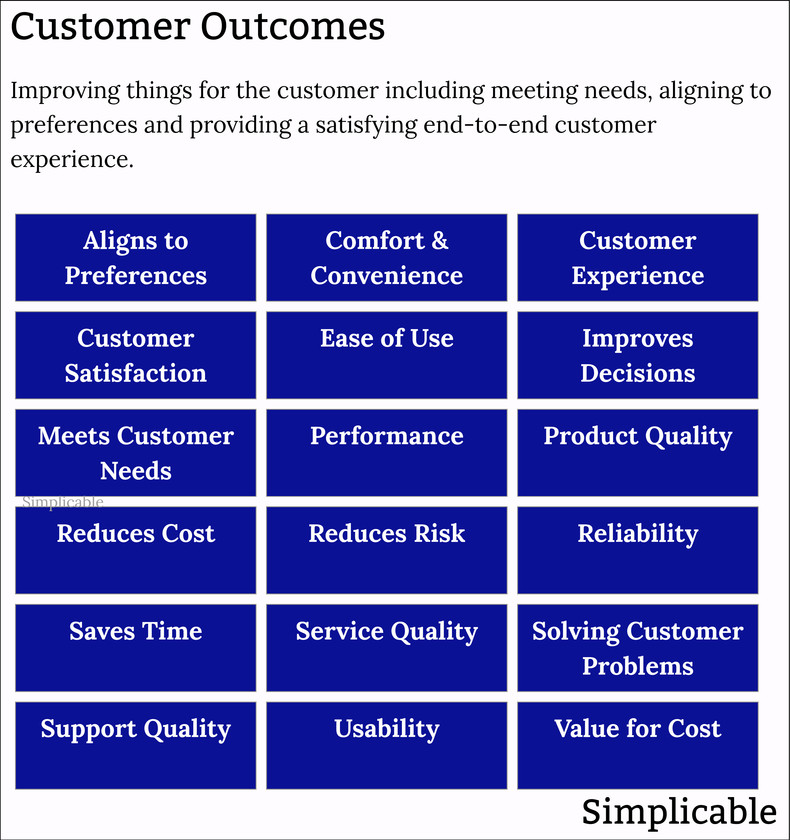
Operational Outcomes
Real world outcomes related to your core value creating processes. For example, the unit cost of a manufacturing line or the uptime of an IT service.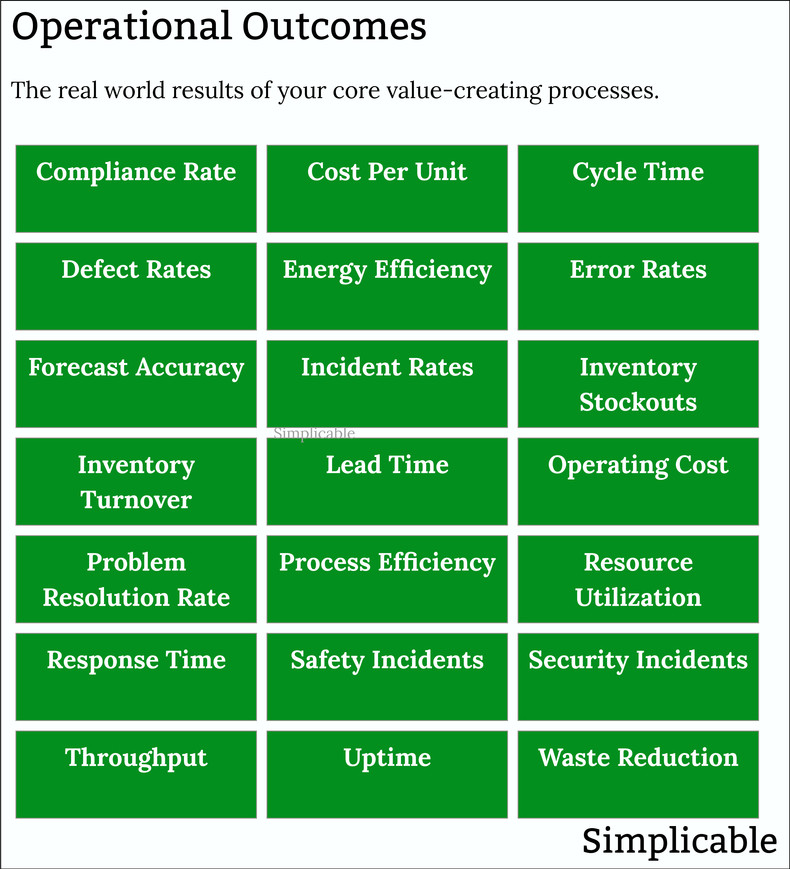
Employee Outcomes
Business outcomes attributable to employees or outcomes related to workplace culture and employee engagement goals. For example, a firm with a goal to reduce absenteeism that measures how many hours employees are spending in the office.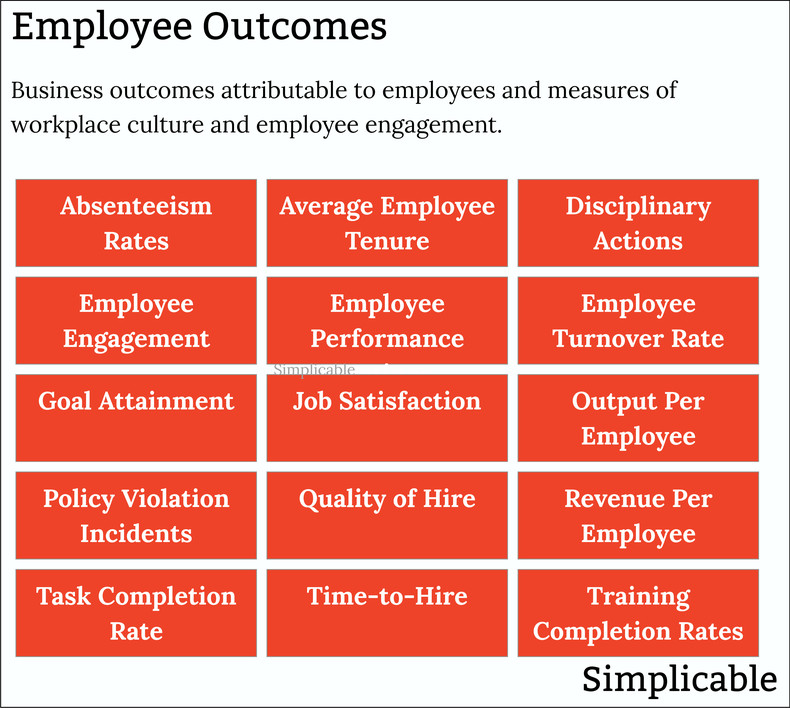
Goals vs Outcomes
Business outcomes are end-goals that are beyond your direct control. For example, you can try to make employees satisfied with their roles but can't directly control things like corporate culture, employee satisfaction and retention of talent. It is common for firms to refer to all targets as business goals and to make no distinction between controllable targets and market results. For example, it is more common to describe revenue targets as goals than outcomes. It is characteristic of mature and advanced planning to list goals and outcomes separately whereby you focus on actionable goals that produce business outcomes.Smart Goals
It is common to establish goals that are specific, measurable, achievable, relevant and time-bound. This can also be applied to outcomes.Goals vs Objectives
Objectives are meaningful steps on the path to a goal. For example, delivering a prototype of a product. Many objectives may map to a goal and many goals may map to a business outcome. For example:Objectives
Design Product
Create Prototypes
Select Prototype to Develop
Develop Product
Launch Product
Goals
Launch new line of premium pencils.
Launch new line of leather pencil cases.
Improve quality of electric pencil sharpener products.
Business Outcomes
Close $25 million in distribution agreements with large ecommerce platforms and retailers.
Increase revenue by 30% YoY.
Improve customer reviews of products on major ecommerce platforms by 3 basis points.
Design Product
Create Prototypes
Select Prototype to Develop
Develop Product
Launch Product
Goals
Launch new line of premium pencils.
Launch new line of leather pencil cases.
Improve quality of electric pencil sharpener products.
Business Outcomes
Close $25 million in distribution agreements with large ecommerce platforms and retailers.
Increase revenue by 30% YoY.
Improve customer reviews of products on major ecommerce platforms by 3 basis points.










































